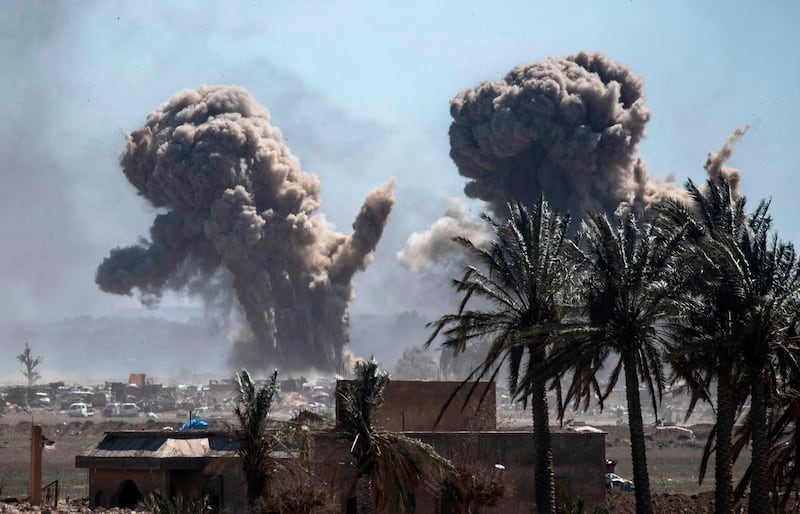Six months after his last message, the shadowy top spokesman for ISIS on Monday evening called for retaliatory attacks after last week's massacre in two New Zealand mosques.
The spokesman, who goes by the name Abu Hassan Al Muhajir, also said that the loss of the group’s last territory in Syria would not weaken its impact.
“The scenes of the massacres in the two mosques should wake up those who were fooled and should incite the supporters of the caliphate to avenge their religion,” Al Muhajir said.
A gunman in Christchurch, New Zealand, last Friday killed at least 50 and wounded dozens with an arsenal of high-powered weapons.
Al Muhajir condemned the “crocodile tears” of those mourning the victims of the attacks.
3) Capitalizing on #NewZealandMosqueAttack, Abu Hassan urges for revenge & condemns the “crocodile tears” of those mourning for victims. Interesting how for #ISIS, Muslims outside its "caliphate" are apostates, until they’re useful for propaganda—then they’re real Muslims again.
— Rita Katz (@Rita_Katz) March 18, 2019
He released a 45-minute audio recording on the encrypted messaging application Telegram.
Discussing the final assault on the last ISIS enclave in east Syria, the spokesman urged fighters on.
"Avenge the blood of your brothers and sisters. Set up the explosive devices, use the snipers," he said.
"Do you think the displacement of the weak and poor out of Baghouz will weaken [ISIS]? No."
The message came shortly before the US-backed Syrian Democratic Forces announced that they had entered the militant group’s tent city around the village of Baghouz in eastern Syria.
In recent weeks as the force moved in closer to the last ISIS enclave, tens of thousands of fighters, families and supporters fled across the front lines where they were taken to camps run by the SDF, several hours away.
Al Muhajir said that ISIS "will return, God willing, to the regions it left, whether it takes a long or a short time".
While the sophisticated propaganda units of ISIS once issued a steady stream of messages, videos and audio recordings, as the group lost territory in Iraq and Syria the output dropped significantly.
Al Muhajir also had messages for the US, its president and other officials as he commented on recent events ranging from Donald Trump’s visit to Iraq in December to the amount America has spent on stabilising the Middle East.
He said he had a message from the leader of ISIS, Abu Bakr Al Baghdadi, telling followers to stay away from telephones and communication devices.
While there have been many reports of Al Baghdadi’s death, the US believes he is still alive but not in the Baghouz area.
Over the course of the campaign against ISIS, intelligence agencies have used data sources to direct strikes against senior ISIS commanders.
The group’s most senior leaders are believed to never use or be near mobile phones, to make it harder for those trying to kill them.
In May 2018, Reuters reported that Iraqi agents holding a top aide to Al Baghdadi had sent messages on Telegram to lure four other commanders from the group into a trap, with the help of the US.
Ismail Al Eithawi, who used the alias Abu Zaid Al Iraqi, was captured in February 2018 in Turkey and handed over to Iraqi agents, Iraqi security adviser Hisham Al Hashimi told Reuters on Thursday.
Mr Al Hashimi described Al Eithawi as a direct aide to Al Baghdadi, who was responsible for funds transfers to the group's bank accounts in different countries.
Once the four other commanders crossed the border from Syria into Iraq, they were arrested by security agents.
Those captured reportedly included Saddam Jamal, a Syrian who served as the group's governor of Syria's eastern Euphrates region.
US intelligence agencies tracked down the then-leader of Al Qaeda, Osama bin Laden, to a compound in Pakistan by tracking a courier bringing him communications from the outside world.
A raid conducted in 2011 by an elite US Navy Seal team killed the militant leader, who was the most wanted man on earth for nearly a decade after he orchestrated the devastating September 11 attacks.





